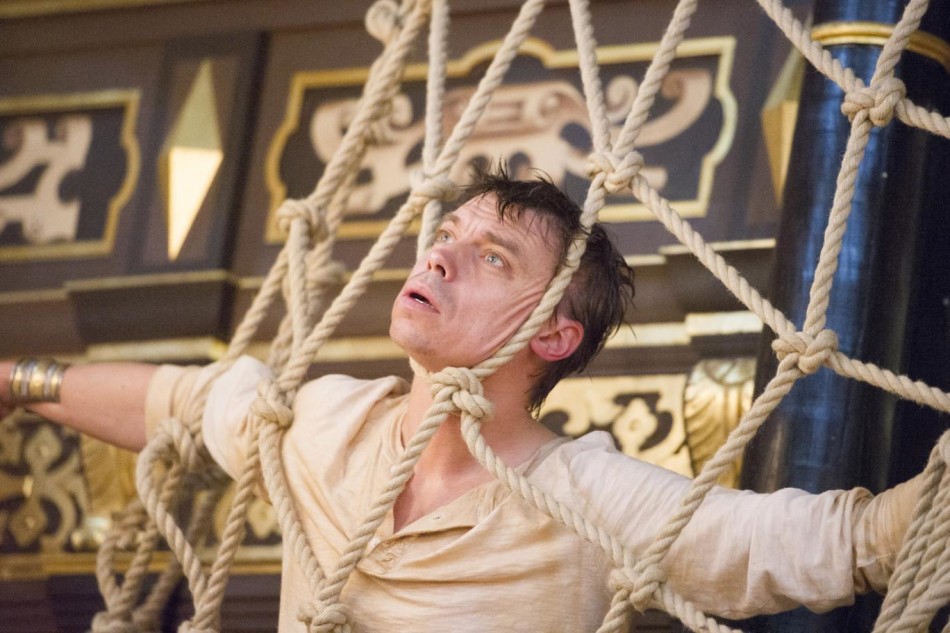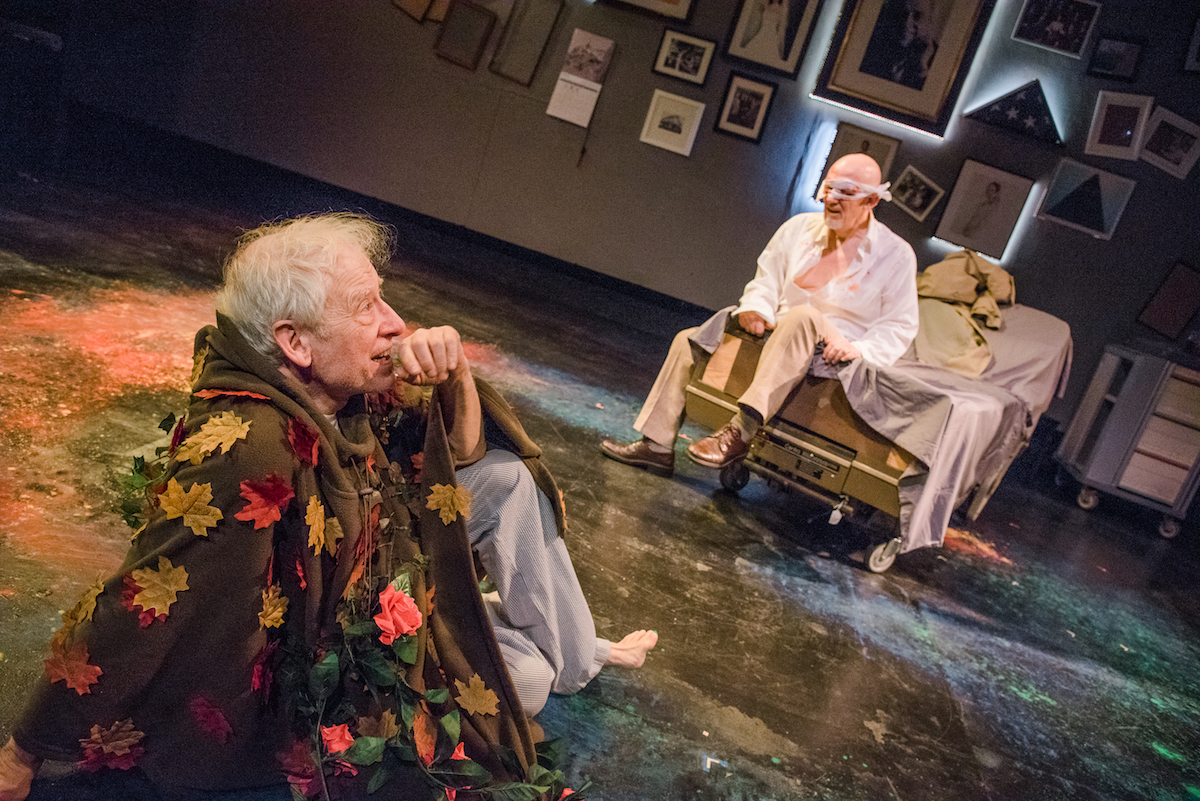by Carol Rocamora
With all eyes on the Mediterranean, where images of desperate refugees are flooding the media, the timing is right for Shakespeare’s Pericles to take the stage again, both in New York and London.
The tale of the ill-starred Prince of ancient Tyre – refugee on those same troubled seas – has, till now, been largely overlooked. There’s the improbable plot and the unwieldy cast – not to mention the script’s uneven tone. After all, this later play, one of the so-called “romances,” wasn’t solely authored by the Bard. His collaborator was George Wilkins, a notorious inn-keeper (and alleged pimp and thief), who wrote the first two acts and whose style is distinctly “un-Shakespearean.”
On the other hand, perhaps that’s why the play enjoyed such popularity when it opened in 1609. It was a court favorite for over a century, but then disappeared from the stage for almost two hundred years. Since the 1950s, it’s been resurfacing, thanks to adventurous directors eager for the play’s many challenges.
Today, Pericles is enjoying two high-profile productions – Trevor Nunn’s Theatre for a New Audience’s production at Polonsky Shakespeare Center in Brooklyn and Dominic Dromgoole’s at Shakespeare’s Globe in London.
Pericles tells the story of the Prince of ancient Tyre who weathers many storms in his sixteen years of sailing the Mediterranean. He flees his kingdom for fear of assassination by a hostile neighbor, whose shameful secret of incest Pericles has guessed. He endures tempests and shipwrecks, and the loss of a beloved wife and daughter whom he’s gained during his travels. Loss of family, homeland and throne drive him into reclusion and depression. Yet, in the end, all is miraculously restored to him.
Pericles is a director’s dream, one that requires staging jousting matches, weddings, storms, shipwrecks, pirate abductions, and brothel orgies. It’s a challenge that Trevor Nunn has embraced with flamboyance and flair. A director of vast Shakespearean experience, Nunn has served as the artistic director of both the Royal Shakespeare Company and the Royal National Theatre – where he has directed 34 of the Bard’s works. He’s made full use of TFANA’s wonderful new “empty space,” dominated by Robert Jones’s huge spherical backdrop that reflects the changing elements. Nunn fills the space with a colorfully costumed cast, navigating his ensemble gracefully through the story, and staging a spectacular tempest filled with billowing sails and actors swinging from the rigging. Christian Camargo is an elegant, eloquent Pericles who captures our hearts, and ensemble standouts include a delightful John Rothman as Pericles’s father-in law. Shaun Davey’s melodious songs give the production a rich, resonant dimension.
Over at London’s Shakespeare’s Globe, director Dominic Dromgoole (in his final season as the theatre’s artistic director) has the added challenge of staging an epic story in a tiny space. The Sam Wanamaker Playhouse – a replica of an indoor Jacobean theatre, built according to original 17th century plans – is limited both in scale and resources. So Dromgoole has had to double-cast and draw upon the audience’s imagination. The result is a magical, miniature Pericles as wonderful as TFANA’s larger scale one, in its own special way. Under candlelit chandeliers, an able cast sails through the storms, as a huge net descends from the theatre’s balconies to become the ship’s sail and a platform extends into the audience to become a prow. Under a starry sky (painted on the theatre’s ceiling), an orchestra accompanies the production on Renaissance instruments. James Garnon is a passionate Pericles, while Jessica Baglow plays a proud, proto-feminist Marina, Pericles’s virtuous daughter. The play’s narrator (Sheila Reid) navigates us through the journey with wit and wisdom. In short, the Globe’s Pericles is a gem of a show in a jewel of a theatre – one in which Shakespeare would have felt at home.
Thanks to these two stellar productions, Pericles is now in our theatergoing consciousness, along with its relevant issues of Middle East conflict and refugee crisis. Ultimately, it’s play about resolution. “In hope I live,” says the motto on Pericles’s shield. If only today’s suffering refugees from North Africa and the Middle East, making their perilous journey across the same sea, could experience the miracle of family reunion, as Pericles did.
Shakespeare’s Pericles, at Theatre for a New Audience, Polonsky Shakespeare Center, Brooklyn until April 10, www.tfana.org; and at Shakespeare’s Globe, South Bank, London until April 21, www.shakespearesglobe.com

























